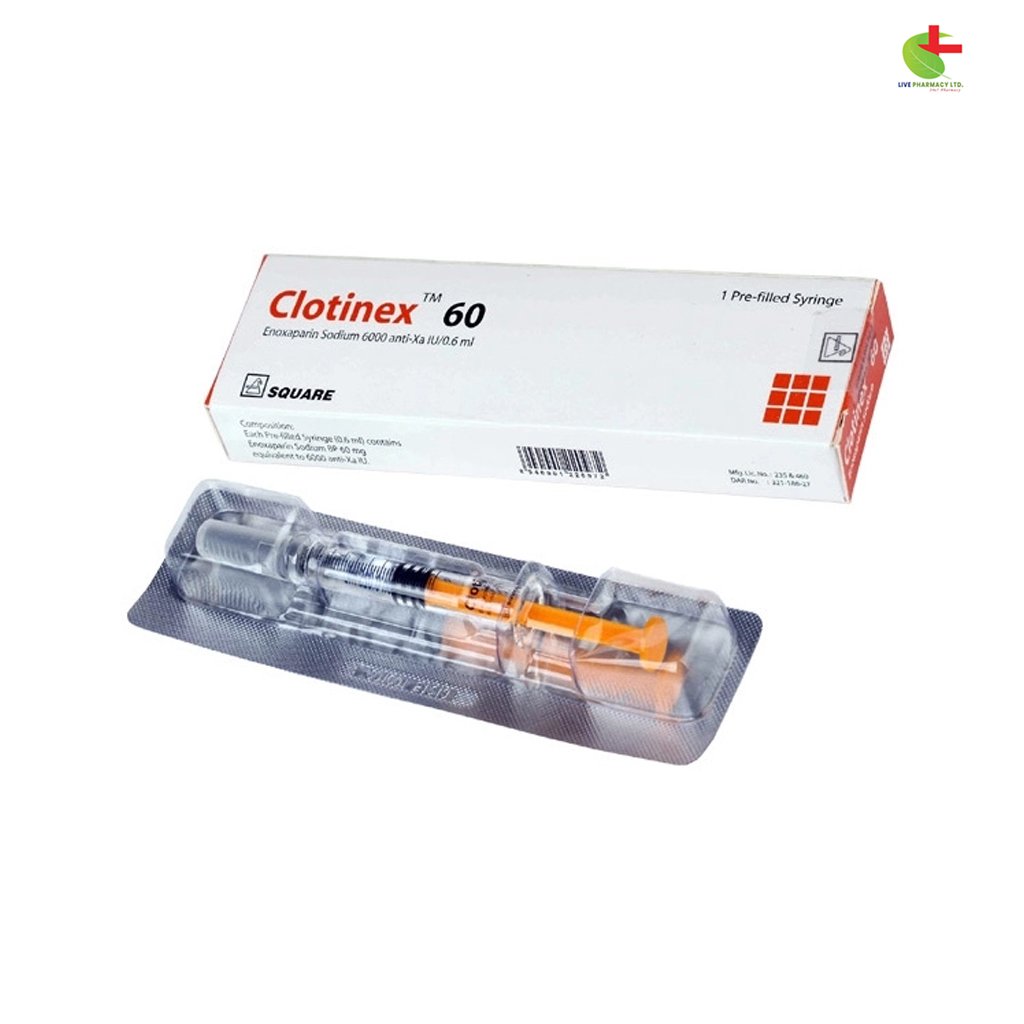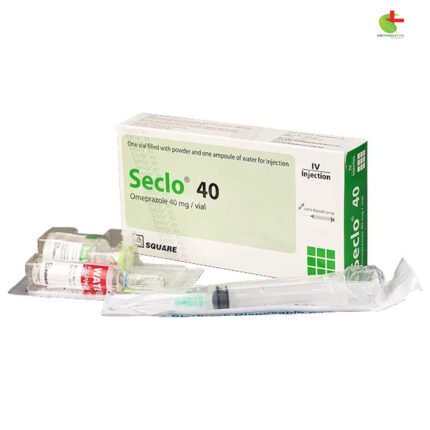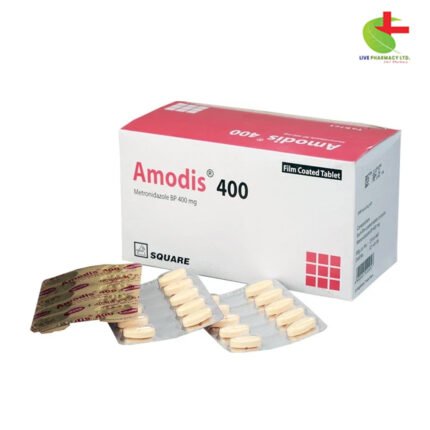Clotinex 60
576.00৳ Pcs
- Clotinex is prescribed for conditions such as deep vein thrombosis, unstable angina, and thrombus prevention during hemodialysis.
- Its active ingredient, Enoxaparin Sodium, effectively prevents blood clot formation.
- Administered via subcutaneous injection, the dosage and duration of treatment depend on the patient’s condition.
- While generally well-tolerated, Clotinex may cause side effects like bleeding or skin reactions.
- It’s crucial to adhere to proper administration guidelines and consult a healthcare professional for personalized advice.
 Brand
Brand
|
Square Pharmaceuticals PLC |
|---|---|
 Generics
Generics
|
Enoxaparin Sodium |
Indications
Clotinex is prescribed for the treatment of deep vein thrombosis, with or without pulmonary embolism, managing unstable angina and non-Q-wave myocardial infarction, alongside aspirin, preventing thrombus formation during hemodialysis, and prophylaxis of venous thromboembolic disease, particularly in patients undergoing orthopedic or general surgery, as well as those bedridden due to acute illness.
Composition
Each pre-filled syringe contains specific amounts of Enoxaparin Sodium BP, ranging from 20 mg to 80 mg equivalent to anti-Xa III.
Pharmacology
Enoxaparin Sodium is a low molecular weight heparin with high anti-Xa activity and low anti-IIa or antithrombin activity. It primarily metabolizes in the liver.
Dosage
The dosage varies depending on the condition being treated, ranging from subcutaneous injections twice daily to once daily, and the duration of treatment is determined by the patient’s clinical response.
Administration
Detailed instructions are provided for preparing the injection site, selecting the dose, and administering the medication, emphasizing proper hygiene and technique.
Interaction
Certain medications affecting hemostasis should be discontinued before starting Clotinex therapy to minimize potential interactions and complications.
Contraindications
Clotinex is contraindicated in patients with known hypersensitivity to Enoxaparin Sodium, heparin, or other low molecular weight heparins, as well as those with active major bleeding or a high risk of uncontrolled hemorrhage.
Side Effects
Common side effects include bleeding, thrombocytopenia, pain, and skin rash at injection sites. Serious complications like neuraxial hematomas may occur in rare cases.
Pregnancy & Lactation
Enoxaparin Sodium is classified as Pregnancy Category B, and its use during pregnancy should be carefully considered based on the potential benefits versus risks. It is unknown whether Enoxaparin is excreted in human milk, so nursing mothers should discuss the risks with their healthcare provider.
Precautions & Warnings
Clotinex should be administered with caution in patients with conditions predisposing to bleeding or those undergoing neuro- or ophthalmologic surgeries. Regular monitoring of platelet counts is recommended during treatment.
Use in Special Populations
Special considerations apply to elderly patients, those with renal impairment, and hepatically impaired patients, necessitating dosage adjustments and close monitoring.
Overdose Effects
Accidental overdosage may lead to hemorrhagic complications, which can be managed by administering protamine sulfate.
Therapeutic Class
Clotinex belongs to the therapeutic class of parenteral anticoagulants.
Storage Conditions
Clotinex should be stored in a cool, dry place, protected from light and moisture, and kept out of the reach of children.













Reviews
There are no reviews yet.